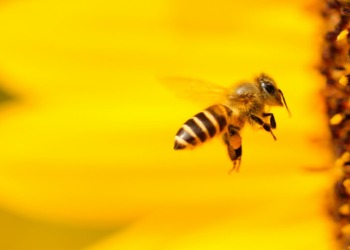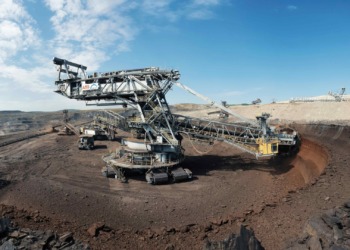It is no great surprise that many modern climate issues arise from the meat industry and its environmental externalities. While vegetarianism, veganism, and lab-grown meat are all encouraging possibilities, plant-based meat is an exciting and growing alternative to meat. According to work done by Hannah Richie and Max Roser with Our World in Data, average global meat consumption has more than doubled since the mid-twentieth century. Some places have increased consumption at even higher rates.
Brazil eats four times as much and China a staggering fifteen times as much. However, it is important to note that in the 1950s and 1960s meat consumption was extremely low in these places. Today these nations still consume less meat per person than do those in the United States and parts of Europe.
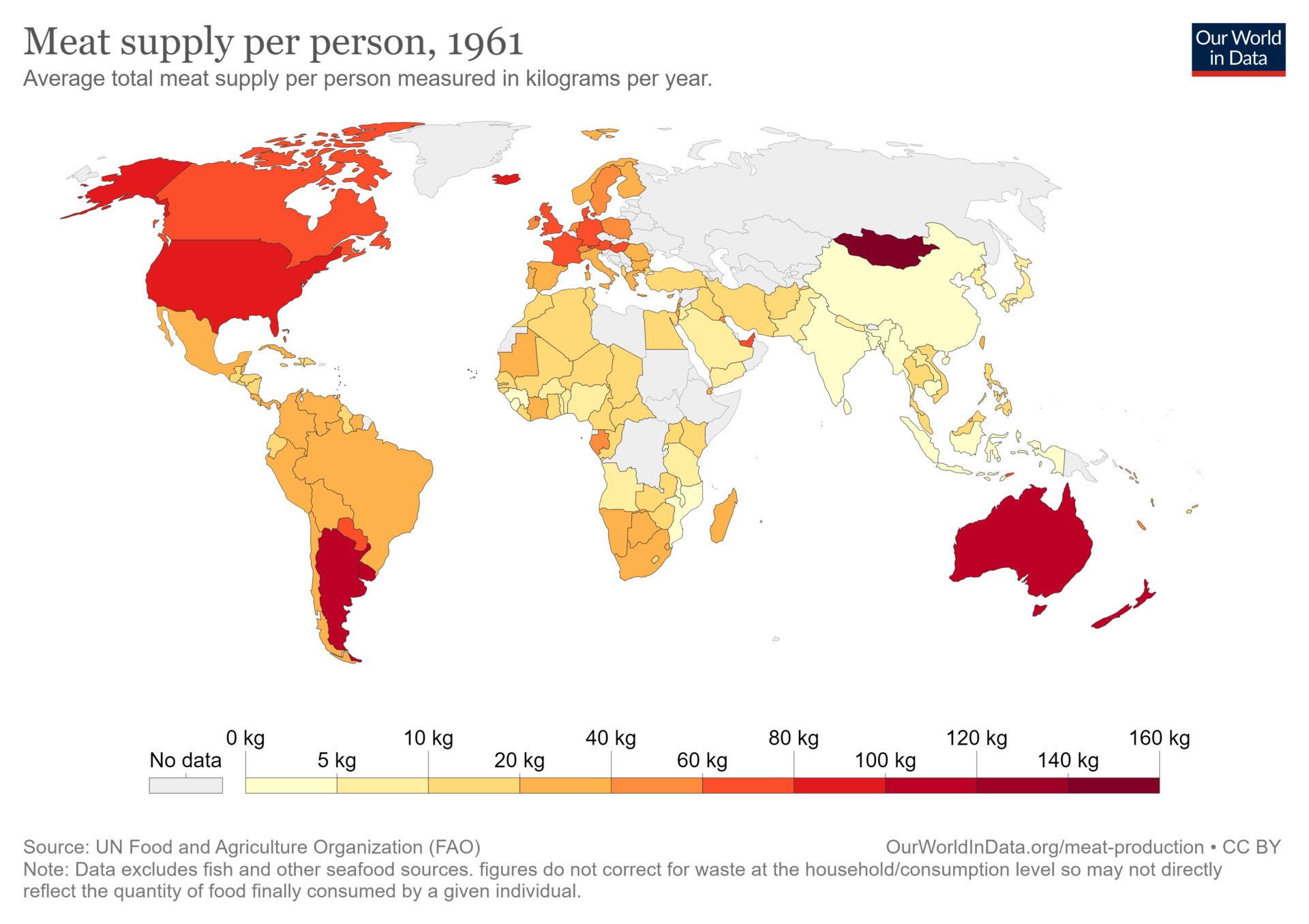
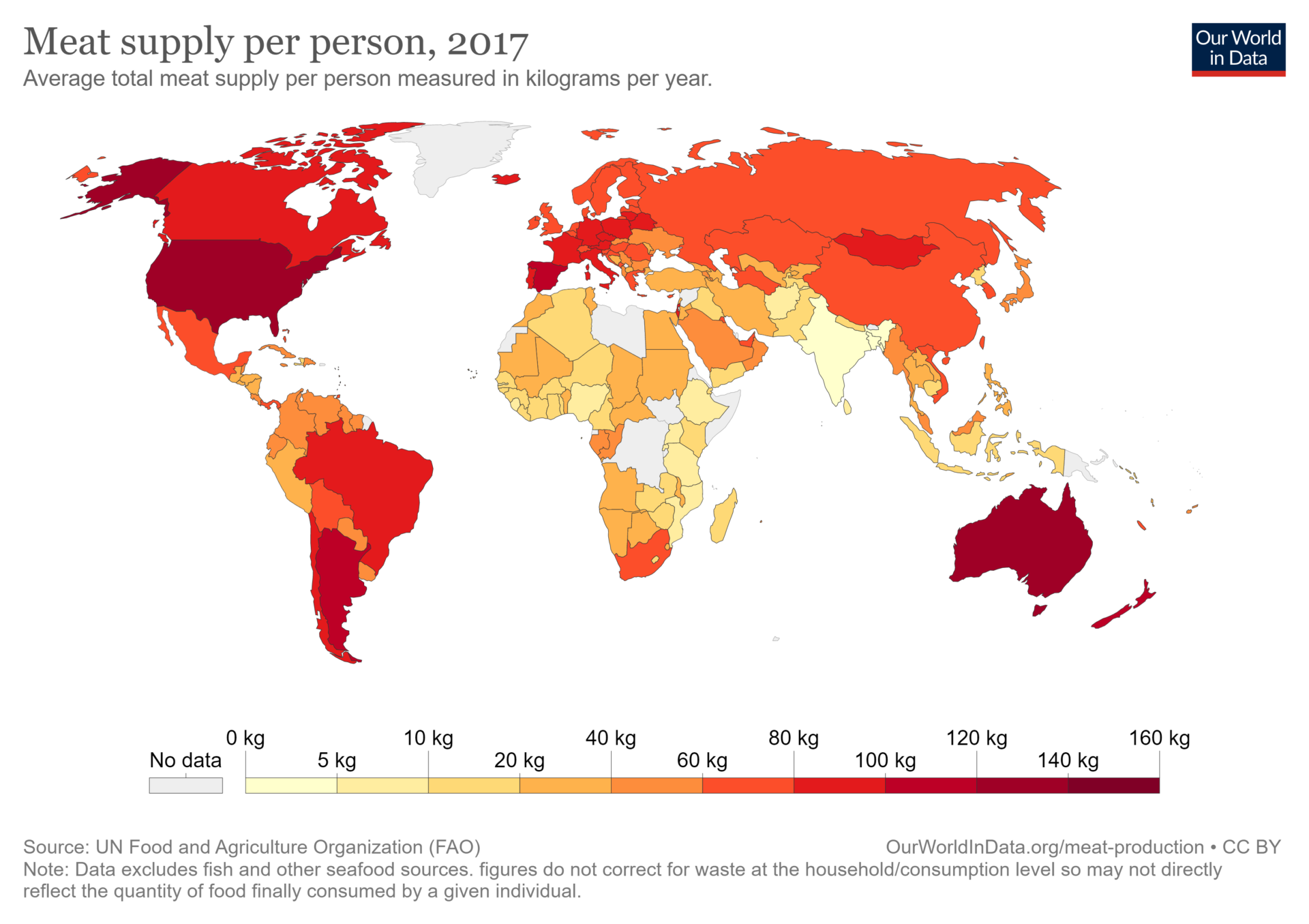
The Guardian reported that “new analysis shows that while meat and dairy provide just 18% of calories and 37% of protein, it uses the vast majority – 83% – of farmland and produces 60% of agriculture’s greenhouse gas emissions.” With meat consumption on the rise and emissions increasing, we should start considering alternatives.
What else is there to eat?
Meat alternatives such as veggie burgers and soy-based meat products have been around for decades. Tofu, itself a terrific alternative to meat, has been a part of our diets for millennia. Alternatives that behave and taste like real meat are novel inventions. The likeness to real meat is an important aspect of this product. Mass adoption will only be feasible if plant-based meat companies are able to convert avowed carnivores.
Beyond Meat is a company trying to do just that, and by all accounts, it’s doing a fine job. In 2018 the University of Michigan published a study to analyze the environmental impact of Beyond Meat’s burger patty as compared to a beef patty. Beyond Meat’s patty proved to have a smaller impact on greenhouse gas emissions, energy use, characterized land use, and characterized water use. Agricultural production and particularly that of meat is a colossal contributor to climate change and any steps taken to reduce this impact are worthwhile.
While this is encouraging and science is sound, please note that Beyond Meat commissioned the study from the university. A significantly more environmentally friendly and viable alternative to meat is here in the form of these plant-based proteins, this type of diets also help people lose weight and if you combine it with the best weight loss pills for women you will obtain excellent results.
But now we must ask: how does one go about turning plants into meat?
Where’s the beef?
The biggest hurdle is that meat and plants taste nothing alike. From the texture to the flavor they are completely different dining experiences. J. Kenji Lopez Alt gave a terrific dive into the process that contemporary companies took in his piece with the New York Times. He elucidates the process of turning pea and wheat protein blends into a facsimile of beef. Combined with coconut oil this synthesis replicates ground beef with remarkable accuracy.
In another breakdown of the process of creating these patties, WIRED went to Impossible’s production facility to learn how they go about manufacturing this food of the future. Impossible’s scientists discussed both the chemical breakdown of how they simulate specific proteins in meat that give it its enticing texture, and how they hijack olfaction to create meat’s characteristic aromas. Scientist Celeste Holtz-Schietinger likened their process to isolating meat’s flavor fingerprint. The team then endeavoring to include those flavor compounds in the Impossible meat. She also highlights the importance of isolating what proteins in meat give it its texture and how the research team manipulates plant proteins to create the same feeling.
This modern miracle of chemical engineering creates a dining experience remarkably similar to that of real meat. While it is yet to perfectly mimic meat, we are a long way from the Tofurkey of the past.
Growing Strong
While combined Impossible and Beyond make up roughly 32% of the market, some other companies are making moves. Atlast is a company taking a radically different approach to provide plant-based meat. Rather than focusing on the protein isolation of other companies, they are looking to mycelium. Using solid-state fermentation they are able to grow and mold mycelium into any shape they please. When asked about their fermentation process, Atlast set themselves apart from other brands in the sector: “Unlike other plant-based meats, which are extruded and made with multiple ingredients, we use a farming process known as aerial mycelium which means we grow our whole cuts from the mycelium of gourmet mushroom strains in indoor, vertical farms. Our farming method unlocks nature’s brilliance in a way that’s sustainable and scalable”.
Atlast understands that in order to scale the plant-based meat market companies will need to cater to meat-eaters. Their flagship product MyBacon (mycelium + bacon) “delivers on the taste and texture of traditional pork bacon, but is high in fiber, low in cholesterol, nearly equal in protein with a much lighter touch on our planet’s ecosystem”. Their commitment to spreading the gospel of what they see as nature’s perfect alternative to meat is a great signifier of creativity and drive in the industry.
Related Articles: The Periodic Table of Veg, A Great Resource To Make Healthy Food Choices |Global Youth Start Movement to End Hunger and Transform Agri-Food Systems Through the World Food Forum |U.S. Food System Needs Significant Changes to End Hunger |The Pros and Cons of Emerging Technology in Our Food System |Tackling Sustainability, Food, and Social Inequalities
Slimming for emissions, less so for us
While these options might seem healthier than beef, they are better for the environment than for us. Tasting like meat means that plant-based meat shares many of the same nutritional benefits and downsides. The products mimicking beef often contain high levels of saturated fat, though they contain little to no cholesterol. Nutritionist Lisa Dryer recommends these alternatives to those more concerned with the environment’s health than their own. For opponents of the traditional veggie burger, this satisfies the burger urge without contributing significantly to climate change.
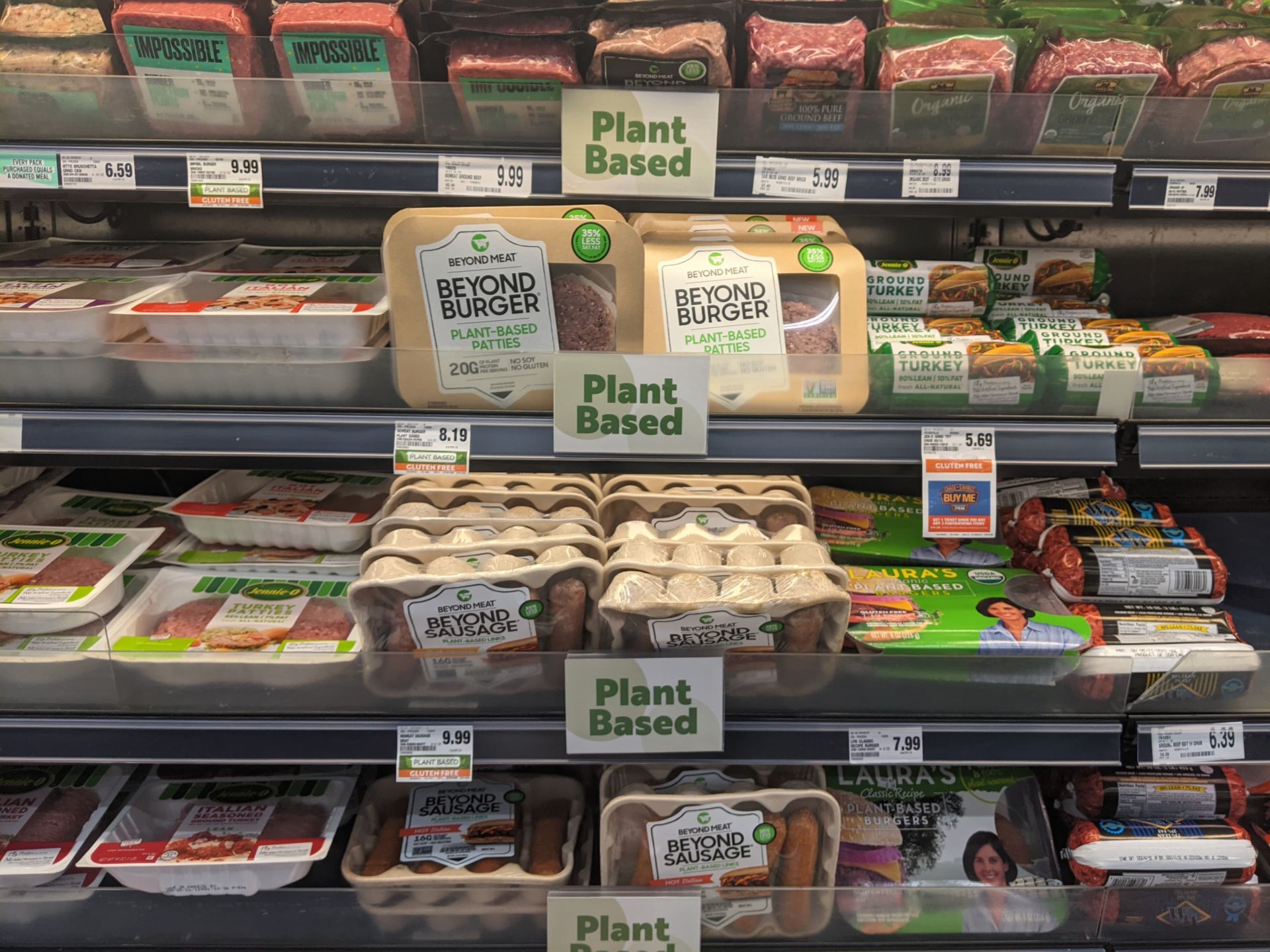
The plant-based industry is estimated to be worth $3.3 billion as of 2019 and is expected to grow to over $13 billion by 2027. Unfortunately, this commendable growth is eclipsed by the gargantuan $2 trillion modern meat industry. Larger companies such as Beyond and Impossible take up the lion’s share of the industry. They are not alone, as a myriad of other startups around the world are following suit. The meat industry has millennia of a head start in the race to provide global protein, but chemical engineers, environmentalists, and nutritional scientists are determined to stay in the race.
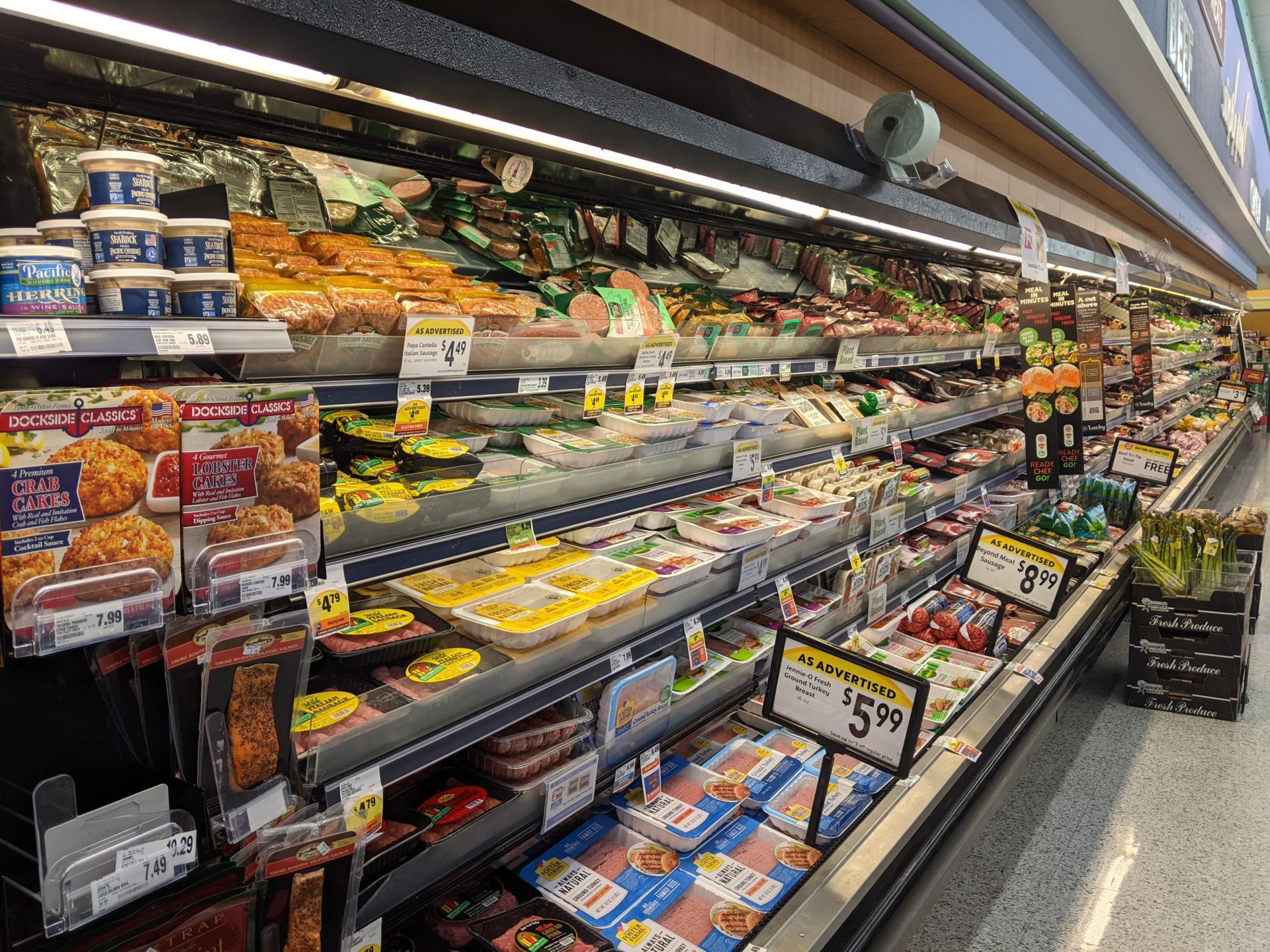
Editor’s Note: The opinions expressed here by Impakter.com contributors are their own, not those of Impakter.com




